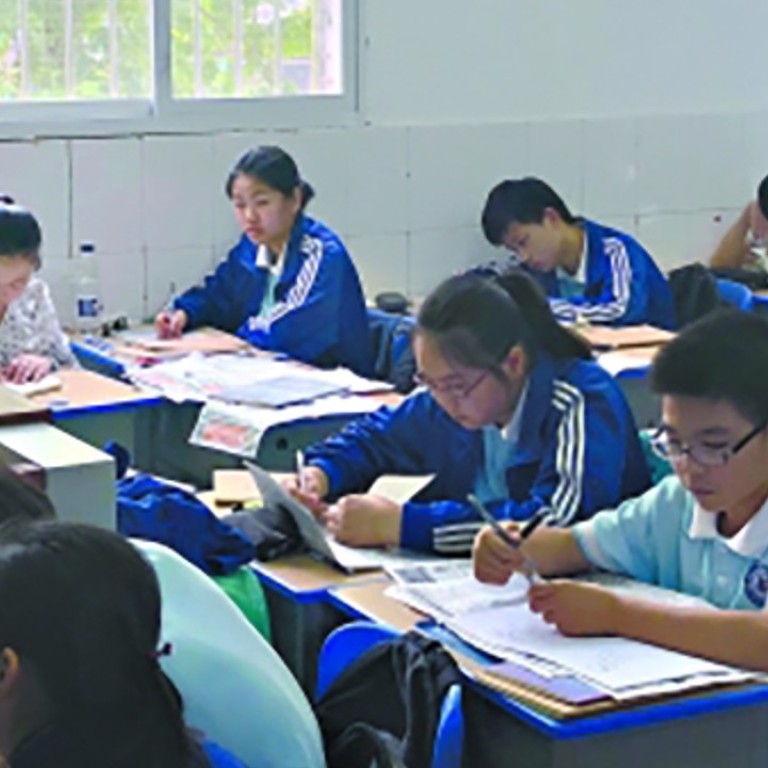
Helicopter parent or dedicated mother? Chinese woman sits in on son’s school classes for three years
Critics say mother crossed a line and the excessive attention could add up to extra pressure on children
An education expert has cautioned parents against following the example of one Chinese mother who has sat in on her son’s junior high school classes for the last three years, Chinese media report.
Dai Jihua said she started accompanying her son to school in Wuhan, Hubei province, when she noticed his grades were slipping, Yangtze River Daily reported on Tuesday.
The boy, only identified as Xiao Hua, had done well in primary school but had struggled with the transition to junior high school.
“I thought it was because of the new environment, but later the teacher advised me to come to class to see how my son fared,” Dai was quoted as saying.
The problem, Dai later found out, was that the son could be easily distracted.
“I knew it wouldn’t be easy to break the bad habit, and the teachers could not keep an eye on him all the time, so I decided to go to school with my son to watch over him,” she said.
Dai sat next to Xiao Hua in class and took notes on the schoolwork, attending about 3,000 lessons over the last three years.
Xiao Hua said that at first he did not want his mother to be there but then he understood why she was doing it and his schoolwork improved, the report said.
The school said it encouraged parents to sit in on classes to see how their children were going and how the school was run.
But critics said the practice should not be encouraged.
A commentary on Hunan news portal Rednet.cn said a mother’s love had “crossed a boundary” in this case.
“Such excessive attention on children could deprive them of their right to be a happy student,” the commentary said.
Writing in China Education Daily, Wang Yao, a teacher from Sichuan, warned parents against following Dai’s example, saying it could put “extra pressure” on pupils.
Reports of families making sacrifices so their children can have a better education are common in China.
In one case that made headlines in 2013, a father in Shandong province spent over 10 million yuan (US$1.5 million) buying a kindergarten to ensure the quality of education for his daughter.

